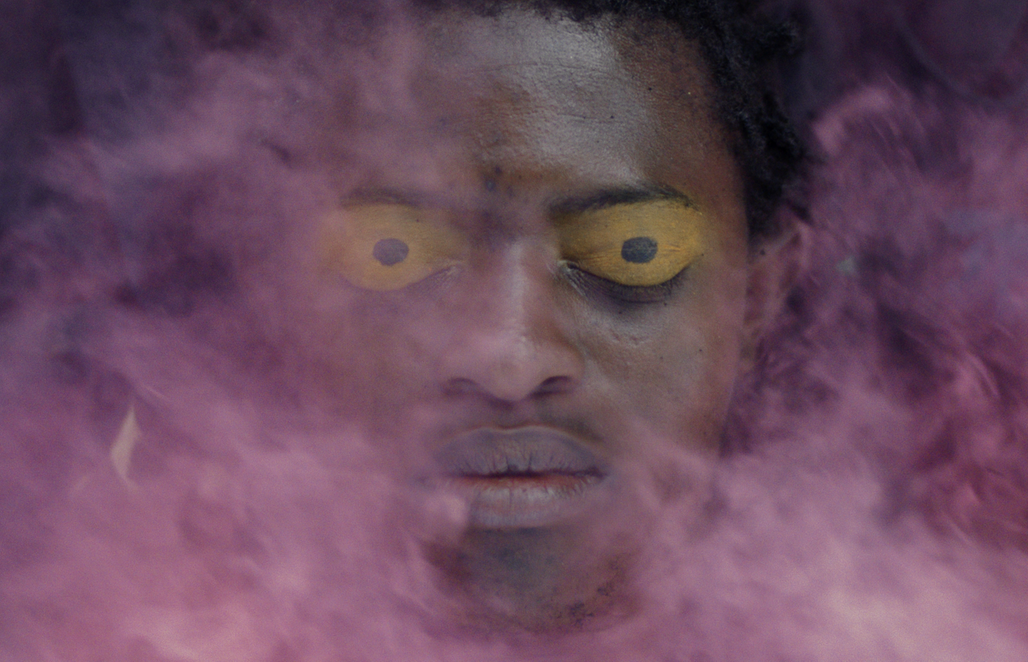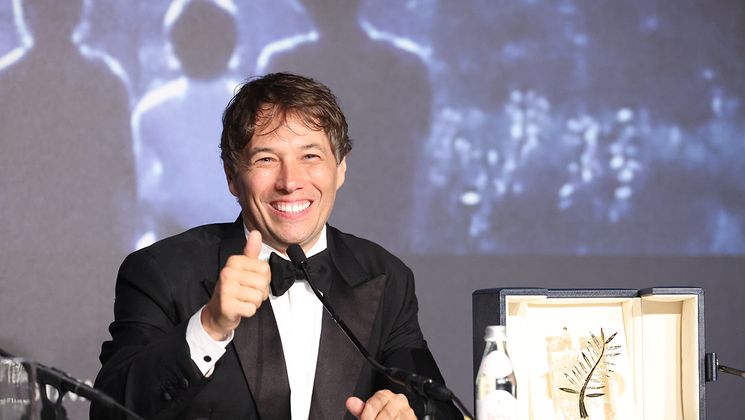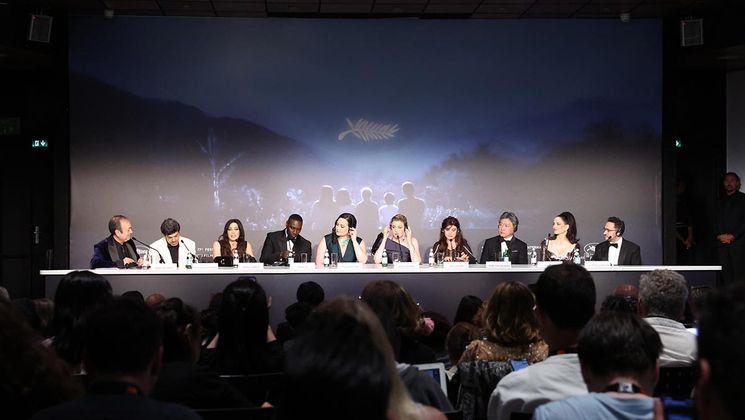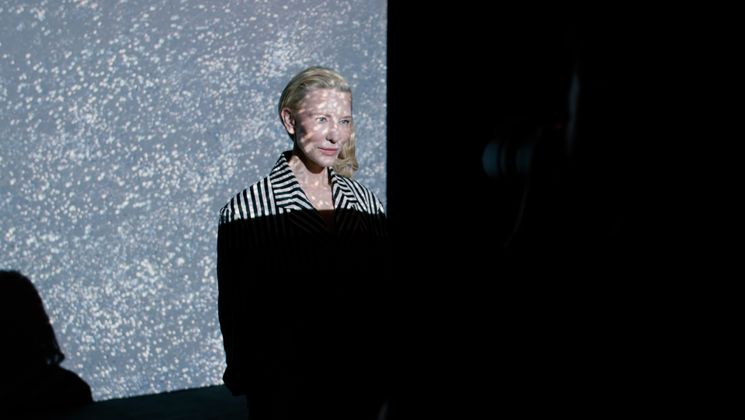
Augure (Omen), as seen by Baloji

In Augure, his first feature film, the Belgian rapper and performer Baloji takes inspiration from the professional mourners employed at the death of his father, to tell the story of four figures, seen as witches and sorcerers, who find a way to help each other escape their assignment in a phantasmagoric Africa.
What was the starting point of your film?
In December 2018, I lost my father. I think I will remember my whole life the hazy state I was in the next day, still stunned by the logorrhea of false, cathartic tears from the professional mourners my family sent to attend the night of mourning. It was a violent moment: it was lame and chaotic, but also liberating. I said to myself: “They can’t cry instead of me”. Then that’s exactly what they did, and more besides: they enabled me to cry with them, so that our tears were mixed together and didn’t betray my reticence, They cry and I cry in reaction to them, I allow myself to do it and that is liberating, like a rush of fever. I consider myself an atheist, but there is no doubt that the singing of the funeral prayer sweeps away the songs of beliefs and religions. That was the starting point of Augure, which I wrote the first version of straight away, in eight weeks, isolated from the world in that feverish state.
What can you tell us about your actors?
Yves Marina Gnahoua is a fabulous actress, she comes from the theatre and carries the film with her magnetic presence: her energy on set is contagious. Yves-Marina is from Ivory Coast. We rehearsed with her a huge amount on her accent and her language tics, which she managed to erase. The idea was not to make her Congolese, but to let her find her place, like Eliane Umuhire, who is Rwandan. Considering the political tensions between our two countries, I think it’s a great triumph to have a Rwandan actress in a film which takes place in the Democratic Republic of Congo. It’s like a way of distinguishing ourselves from our leaders. Marc Zinga and Lucie Debay formed a kind of couple with one mind on screen, where one would finish the other’s sentences. They are the most experienced actors in the project. They took Lingala lessons to make the local actors feel less inhibited, with the aim of growing the scenes together as a group.
What did you learn during the course of making this film?
Before the shoot, I created an original soundtrack in four albums written from the point of view of the four main characters in the film. That exercise changed the way in which I comprehend the question of point of view in writing. It was a fantastic lesson in empathy, above all for the discs for the female characters. In the end the music from the original score only featured a little in the film, but it served as a kind of tool, a crutch for the actors finding their intentions for their roles. I have synesthesia: a sensory association which means I perceive colours in relation to sounds. This helped me in choosing the backgrounds, the costumes and generally with directing and my work with the director of photography. I think this type of exercise will continue into my future projects, as will the need to take more care over how the actors enter and leave shots, to make the film hang together better. You have to let the actors occupy the space.
What made you want to become a director?
I am an devoted fan of Barry Jenkins, Steve McQueen, the Safdie brothers, Sean Baker and Wes Anderson. I also find some correspondence between my offering of magic realism in the cinema and the Mexican and South American filmmakers (Alexandre Landes and Alejandro González Iñárritu) and Spanish filmmakers like Rodrigo Sorogoyen and Pedro Almodóvar. I am in love with the inventiveness of the direction of filmmakers like Park Chan-Wook, but my childhood in Liège with the Sicilian community made me an absolute fan of Italian Cinema: Antonioni, Fellini and Pasolini, because they are masters of surrealism.


